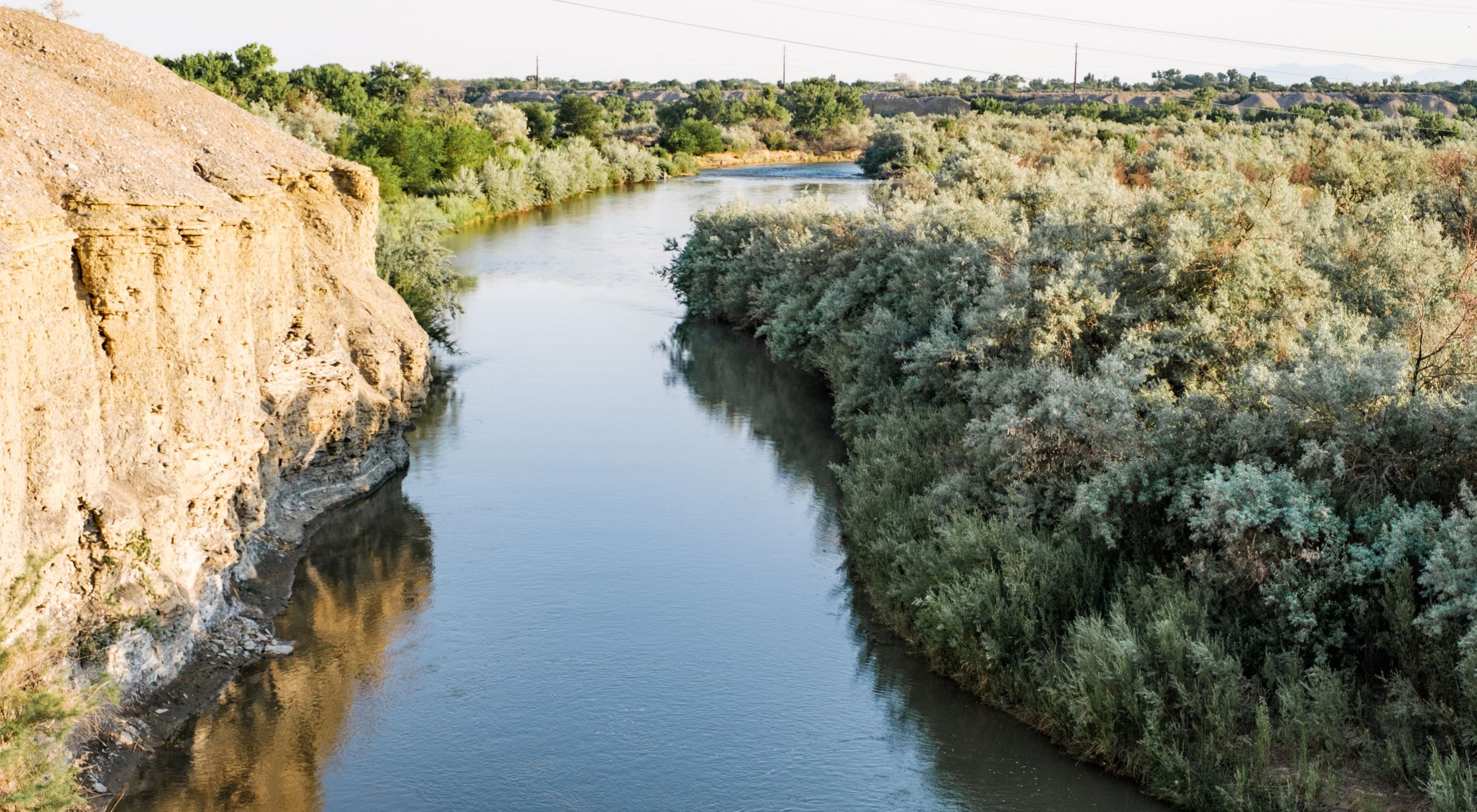The Jicarilla Apache Nation, New Mexico Interstate Stream Commission and The Nature Conservancy Enter Next Phase in Historic Water Supply Agreement
Water expected to be released into the San Juan River in 2023
Media Contacts
-
Tracey Stone
Associate Director of Communications
The Nature Conservancy
Email: tstone@tnc.org -
Lindsay Schlageter
Senior Manager, Media and Communications
The Nature Conservancy
Email: Lindsay.Schlageter@tnc.org
Today the Jicarilla Apache Nation (Nation), New Mexico Interstate Stream Commission (NMISC) and The Nature Conservancy (TNC) announced the next phase in their Water Supply Agreement (agreement) that was reached earlier this year. With final federal and state approvals secured, the NMISC has placed an order for all 20,000-acre feet of water and the Nation has approved and reserved the water to be released from Navajo Reservoir to the San Juan River in 2023.
In January 2022, the partners signed a first-of-its-kind agreement that allows the NMISC to lease up to 20,000-acre feet of water per year (for 10 years) from the Nation to benefit threatened and endangered fish and increase water security for New Mexico. As the western US faces its driest period in 1,200 years, this agreement demonstrates how Tribal Nations and state governments can work on a sovereign-to-sovereign basis—with support from conservation organizations—to find collaborative solutions that benefit multiple interests and users of the San Juan and Colorado rivers.
"The Jicarilla Apache Nation looks forward to the implementation phase of this project and hopes that this transaction can serve as a model across the Basin for collaboration with conservation organizations, negotiation of arms-length sovereign-to-sovereign agreements, and development of creative solutions that serve multiple interests," said Jicarilla Apache Nation President Edward Velarde.
The partners are exploring multiple options about when and how the water will be released in 2023. The decision on timing will be made by the lease agreement parties with input from scientists to determine the best outcome for endangered fish species. Scientists are working on a plan to monitor how the habitat for endangered fish reacts to the release and will use the information garnered to help make decisions for future releases.
"The NMISC is pleased that we are able to support this important project through New Mexico's Strategic Water Reserve," said NMISC Director Rolf Schmidt-Petersen. "We want to be sure we've carefully thought through the logistics of the first water release and seize the opportunity to measure benefits to the razorback sucker and Colorado pikeminnow."
This project will use the Nation's water temporarily placed in the State of New Mexico's Strategic Water Reserve for the two purposes of the Strategic Water Reserve: 1) to assist the State in complying with interstate stream compacts and court decrees, and 2) to assist the State and water users in water management efforts to benefit threatened or endangered species.
"The Colorado River is in an unprecedented crisis," said Celene Hawkins, Colorado River tribal partnerships program director for The Nature Conservancy." Communities must proactively work together, focusing on water conservation and management. This project is a step toward those goals, and we are thrilled to be a part of this great partnership."
The Nature Conservancy is a global conservation organization dedicated to conserving the lands and waters on which all life depends. Guided by science, we create innovative, on-the-ground solutions to our world’s toughest challenges so that nature and people can thrive together. We are tackling climate change, conserving lands, waters and oceans at an unprecedented scale, providing food and water sustainably and helping make cities more sustainable. The Nature Conservancy is working to make a lasting difference around the world in 77 countries and territories (41 by direct conservation impact and 36 through partners) through a collaborative approach that engages local communities, governments, the private sector, and other partners. To learn more, visit nature.org or follow @nature_press on X.
About the New Mexico Interstate Stream Commission: The Office of the State Engineer is charged with administering the state’s water resources. The State Engineer has power over the supervision, measurement, appropriation, and distribution of all surface and groundwater in New Mexico, including streams and rivers that cross state boundaries. The State Engineer is also Secretary of the Interstate Stream Commission.
The nine-member Interstate Stream Commission is charged with separate duties including protecting New Mexico’s right to water under eight interstate stream compacts, ensuring the state complies with each of those compacts as well as investigating, conserving and protecting the waters of the State, in addition to water planning.
